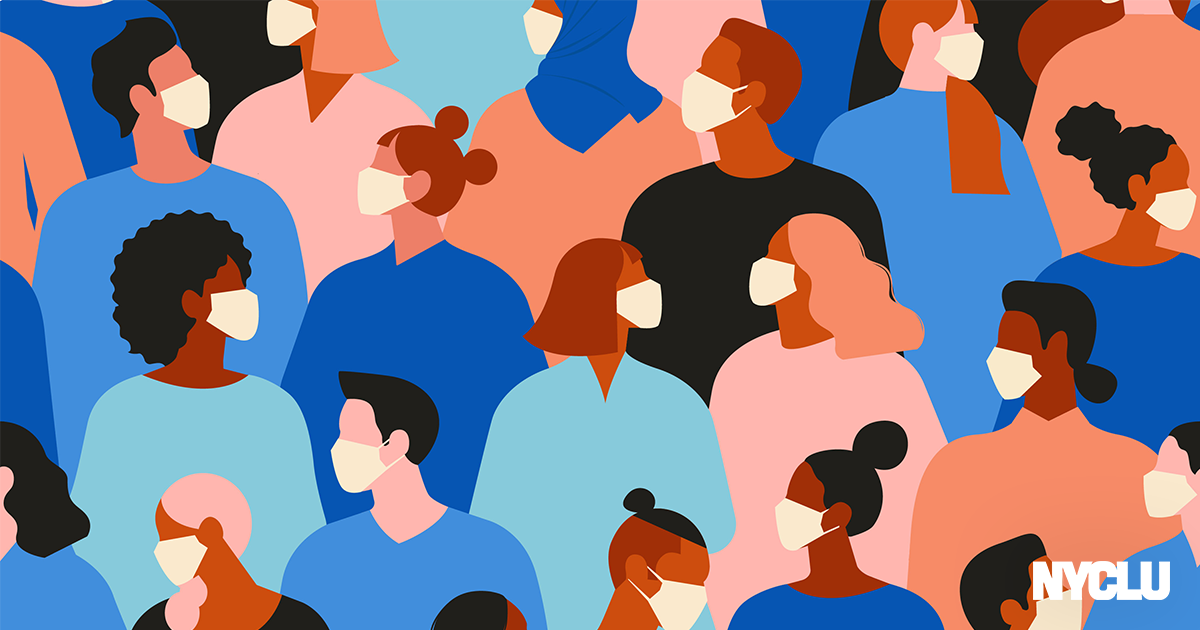A Long Island Legislature is Robbing New Yorkers of Color of their Voting Rights
Civil Liberties Union

This piece is the first in a series that grapples with the COVID-19 pandemic.
The coronavirus affects all of us and it has exposed America’s deeply unequal society where some are more vulnerable to its impacts. But it also teaches us that we ignore the most vulnerable at our peril— no one will be safe until all of us have access to what we need to protect our health and wellbeing.
Here are just a few of the populations most in danger from coronavirus and a few ways New York’s leaders can help them.
One of the best ways to combat COVID-19 is by allowing people to stay home if they feel sick. But for the 1.3 million New Yorkers who lack paid sick leave at their jobs, that hasn’t been an option.
After pressure from advocates including the NYCLU, the legislature passed and the governor signed a bill that will provide protections for workers during the pandemic.
This emergency bill requires employers with 100 or more employees to provide at least 14 days of paid sick leave and companies with 11 to 99 employees to provide at least five days of paid sick leave during the quarantine period. All employers would have to provide job protection for as long as the quarantine order lasts.
But the legislature has yet to enact a much needed permanent paid sick leave bill that would enable workers to take the time they need to care for themselves or others when they are sick, without fear of losing their job.
People in prisons and jails are highly vulnerable to outbreaks of contagious illnesses. They are packed together in close quarters with little control over their daily interaction with others, and are often in poor health.
Police, prosecutors, and judges must make sure that people are only sent to jail or prison when absolutely necessary to protect public safety. This means police should not arrest people for minor offenses, prosecutors should decline to prosecute non-serious crimes, and judges should make ample use of diversion programs and other tools to keep people from being locked up.
There have been some encouraging developments so far. The New York City Board of Correction recommended that the city move to reduce the number of people in jail and to limit new admissions to exceptional circumstances. The Brooklyn District Attorney’s office announced it would not bring charges for certain minor offenses. And New York City Mayor Bill de Blasio said he’s working on a plan to release certain people from jail, including people held on minor offenses and those over 50.
Jails and prisons must also do everything they can to prevent the spread of coronavirus in their facilities including by screening and testing people, distributing handwashing and sanitizing supplies, and educating the staff and the people under their care about how to prevent the spread of the disease.
Just as those in prisons and jails are in particular danger from coronavirus, people in immigrant detention face similar risks. To make matters worse, ICE has made it common practice to lock people up who pose no safety threat for weeks or even months while they wait for their immigration cases to play out.
That’s why the NYCLU and the Bronx Defenders asked a federal court this week for an emergency order that would require ICE to release people from immigration jails in New York and New Jersey. The request was part of our ongoing lawsuit challenging the New York City ICE field office’s practice of jailing nearly all of the people they have arrested over the last three years without first conducting a legally-required assessment of whether the person should even be detained.
New York Mayor Bill de Blasio closed the city’s schools this week. The Mayor’s reluctance to do so until now is tied to the fact that many students count on schools for things like daily meals, special education supports, guidance counselors, social workers, menstrual products, condoms, internet access, and even washers and dryers.
Critically, the city’s Department of Education is doing an excellent job continuing to provide students with meals while school is out. And the DOE also deserves praise for its plan to provide 300,000 iPads to students who don’t have computers or internet access so they can continue their education remotely. Unfortunately, it’s going to take several weeks for students to get their iPads. The DOE must make sure they are distributed quickly and equitably.
Schools aren’t just places of learning, they are where many families turn for general government information like whether they will be evicted if they lose their job, whether ICE is continuing to arrest people, and where they can go for help finding child care. School officials across the state should have this information at their fingertips.
The coronavirus presents new public policy challenges and exposes old ones. But the pandemic cannot be used to justify governments operating in the dark. Our local and state governments must work to create and utilize inclusive technological options so that people can see how our elected officials are grappling with these unprecedented challenges. Problems this big should not be dealt with in smoke-filled rooms.
The coronavirus has laid bare many of our greatest societal weaknesses and provided an urgent opportunity to meaningfully address them.
Here’s where you can see some of our work to address this crisis.